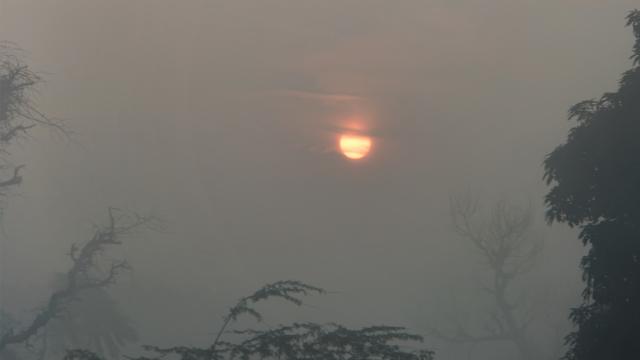If and when the nuclear holocaust begins to bring down society as we know it, it isn’t the initial blasts you should be worrying about. Carl Sagan and other scientists once hypothesised that dust blocking out the Sun could bring a nuclear winter. It probably happened before – to the dinosaurs.
Image: Kathleen/Flickr
A team of scientists have dug deep into the specifics of the Chicxulub impact, the one that accompanied the demise of the dinosaurs 66 million years ago. After new models based on new data, it turns out that the event could have launched an immense amount of sulphur and carbon dioxide into the atmosphere. This would have drastically changed the Earth’s climate and surely had an impact on which species survived.
You may have heard about the effects of the impact on climate before, but this model is based on even more data. The researchers wanted to revisit the climate change after new improvements in mathematics and better understanding of the impact angle of the asteroid and the composition of the Earth below the crater became available. Their results showed that the asteroid could have instantly tossed around 300 gigatons of sulphur and 420 gigatons of carbon dioxide into the atmosphere. For comparison, all of humanity dumps around 40 gigatons of carbon into the atmosphere annually.
You’re probably wondering why the planet cooled instead of warmed. All of the sulphur would have drastically reduced the amount of incoming solar radiation, like putting a black cover over the greenhouse, explained Anthony Martin, a professor in the department of environmental sciences at Emory University.
The new model predicts that “that surface temperatures were reduced by > 20°C and took over 30 years to recover following the Chicxulub impact,” according to the paper published in Geophysical Research Letters by scientists Natalia Artemieva from the Planetary Science Institute and Joanna Morgan from Imperial College, London. Such a drastic temperature drop would have had (and did have) catastrophic effects on Earth’s life, causing around three-quarters of all species to go extinct. Scientists generally agree that the bigger animals suffered most, but this new paper makes the story even worse.
“The mass extinction would have wiped out even more plants an animals than we thought before,” said Martin. He thought there was sufficient evidence to support the study’s conclusion, while pointing out that this is just a model, and no model is exactly correct. “But this is a useful model,” he said.
Does this mean anything to you today? Aside from better explaining where the dinosaurs went, no… unless there’s a nuclear war or some event that could similarly knock lots of aerosol particles into the atmosphere. Then, well, sorry.
